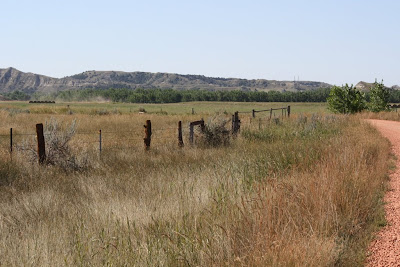
Sometimes a man's mind goes blank
and his thoughts go to gonzo
wandering. In Medora
I asked, "Do you have cowboys
in Turkey?" and a wry smile
with "No" came back as we stood
in a line. The prairie dogs
barked when Ike stepped from the car
straining at his leash, wanting
to chase the pesky buggers.
The ladies dug crocodile
teeth from the earth which prompted
the man to say, "Hey, good one!"
I roamed the aisles of the best
bookstore this side of New York
and swapped lies with owner Doug
who dressed resplendent in togs
right out of the latest look
in old-time western vestments.
And dig deep we did to eat
in the cafes of that town
making me swear to haul fuel
in my trunk next time we came.
Teddy Roosevelt's legend
still lives on while lots of loot
gets made on his name out here.
There sat the wife of the man
who restored the town, Sheila,
who liked my poem and sent
me the book about the horse,
my hero, Tipperary.
So, my gonzo wandering
comes to an end while I get
back to writing my story
mixed with fact and fiction and
I've forgotten which is which.























